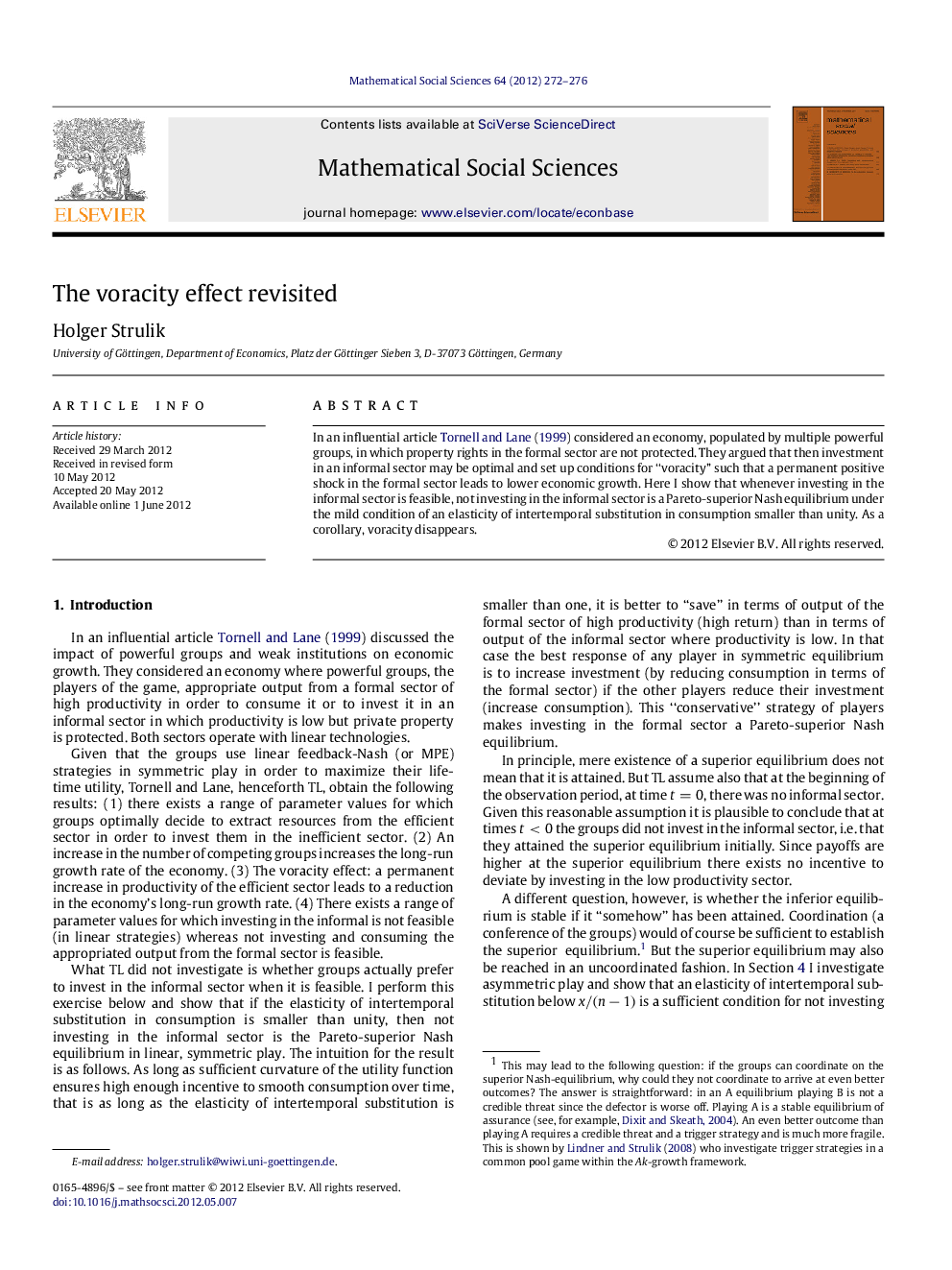| Article ID | Journal | Published Year | Pages | File Type |
|---|---|---|---|---|
| 973243 | Mathematical Social Sciences | 2012 | 5 Pages |
In an influential article Tornell and Lane (1999) considered an economy, populated by multiple powerful groups, in which property rights in the formal sector are not protected. They argued that then investment in an informal sector may be optimal and set up conditions for “voracity” such that a permanent positive shock in the formal sector leads to lower economic growth. Here I show that whenever investing in the informal sector is feasible, not investing in the informal sector is a Pareto-superior Nash equilibrium under the mild condition of an elasticity of intertemporal substitution in consumption smaller than unity. As a corollary, voracity disappears.
► The article re-investigates growth without enforceable property rights in the formal sector. ► It sets up conditions for an inefficient informal sector (shadow economy) to exist. ► For a large range of parameters investing in the formal sector is a Pareto-superior equilibrium. ► Conditions for the voracity effect to occur are less general than previously thought.
